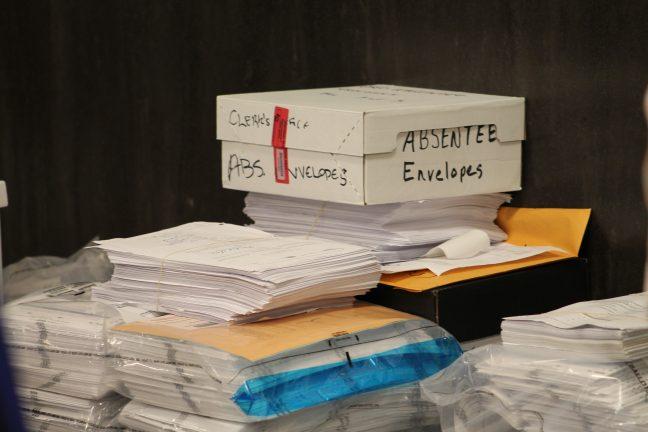Sept. 8, a Wisconsin judge ruled state law does not permit election clerks to fill in missing information on witness certification envelopes that contain absentee ballots.
In 2016, the Wisconsin Elections Commission told clerks they could add information themselves if all or part of an address was missing — known as ballot curing — but now it is up to clerks to decide which ballots should be counted and which should not.
The ruling was quickly appealed by Democrats and declined suspension Sept. 12. Many Democrats raised the concern that the ruling would create whiplash voting with changing guidelines for accepting absentee ballots so close to the election. But this neglects that the ruling only changes what clerks are allowed to do with a ballot and does not change the process on the voters’ side.
The real issue with the ruling is it didn’t go far enough.
Class action lawsuit highlights socioeconomic inequities for criminal defendants
In recent years, absentee voting has raised a variety of concerns in regards to voter fraud. According to the Washington Post, mail-in ballots are rejected at a much higher rate than in-person ballots.
And, according to the U.S. Election Assistance Commission, of the 33.2 million mail ballots clerks received in 2016, about 1% weren’t counted. In 2018, about 628,000 votes of the 30.2 million domestic civilian mail ballots were rejected.
Additionally, votes casted by people of color are more likely to be thrown out than ballots cast by white voters. For example, the Washington Post conducted research among Georgia’s 159 counties. They found Black voters’ ballots are rejected significantly more often than white voters’ ballots, producing disparities at the county level.
The study also explains that potential reasons for this may be because people are unfamiliar with how to vote by mail or don’t know specific details to make sure votes are cast in time. One of the benefits of voting in person is that voters can interact with workers to figure out any problems or questions they may have — absentee voting doesn’t allow that.
Another analysis from the Washington Post explains that because of the sheer number of steps in absentee voting, the process has the potential to create conditions for error.
Allowing for more subjectivity in the process by allowing clerks to decide for themselves which ballots should be counted makes the situation significantly worse. The lack of standardization and failure to educate those who do want to vote by mail may also disproportionately affect people of color.
Letter to the Editor: UW must recenter disabled perspectives in academia
Clerks shouldn’t be allowed to fill in missing information after the ballots have been turned in, but this doesn’t mean the ruling is good news. In fact, regulations should do more to increase election security.
Even with these new guidelines, there are lots of opportunities to count votes that shouldn’t be counted, and discard votes that shouldn’t be discarded. The ruling is a feeble attempt to fix a big problem and subsequently has left enough room for vulnerability in the voting process.
It’s harsh but fair to throw out ballots lacking the proper requisites and information because this is part of how Wisconsin verifies votes. That being said, in order to prevent these mistakes, the state should do a better job of educating citizens on the process of casting a legitimate vote.
Often, in-person voting results in less discarded ballots because there is a person on the scene to help voters with any questions they have, preventing the mistakes they make in the process. So, while pandemic conditions explain why absentee voting has been encouraged in the past, in-person voting should be encouraged whenever possible.
Elections, without a doubt, need to be significantly more standardized. We want our votes to matter, and our elections to be as fair, objective and protected as possible.
Jessica Lewin ([email protected]) is a junior studying journalism and philosophy.




















